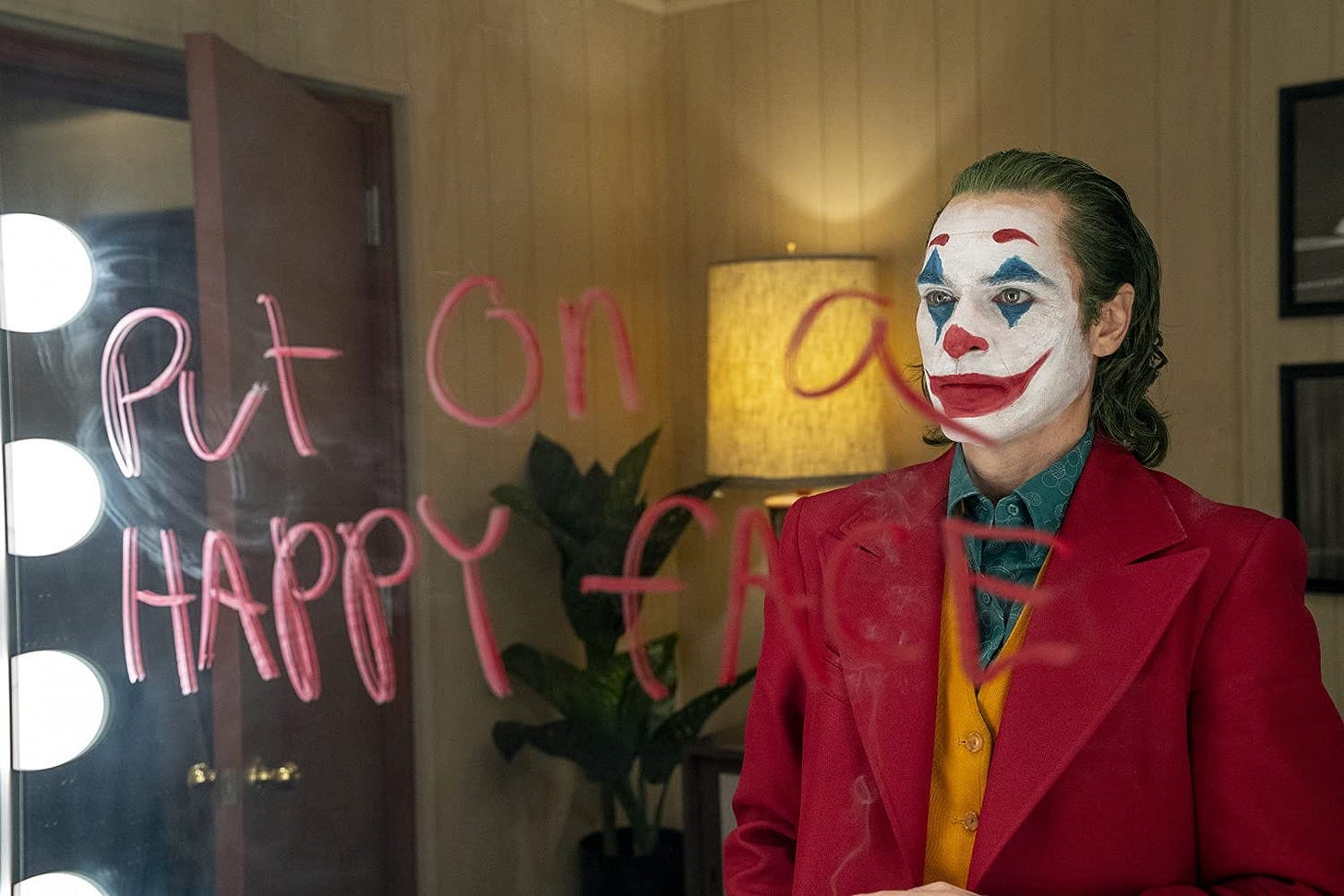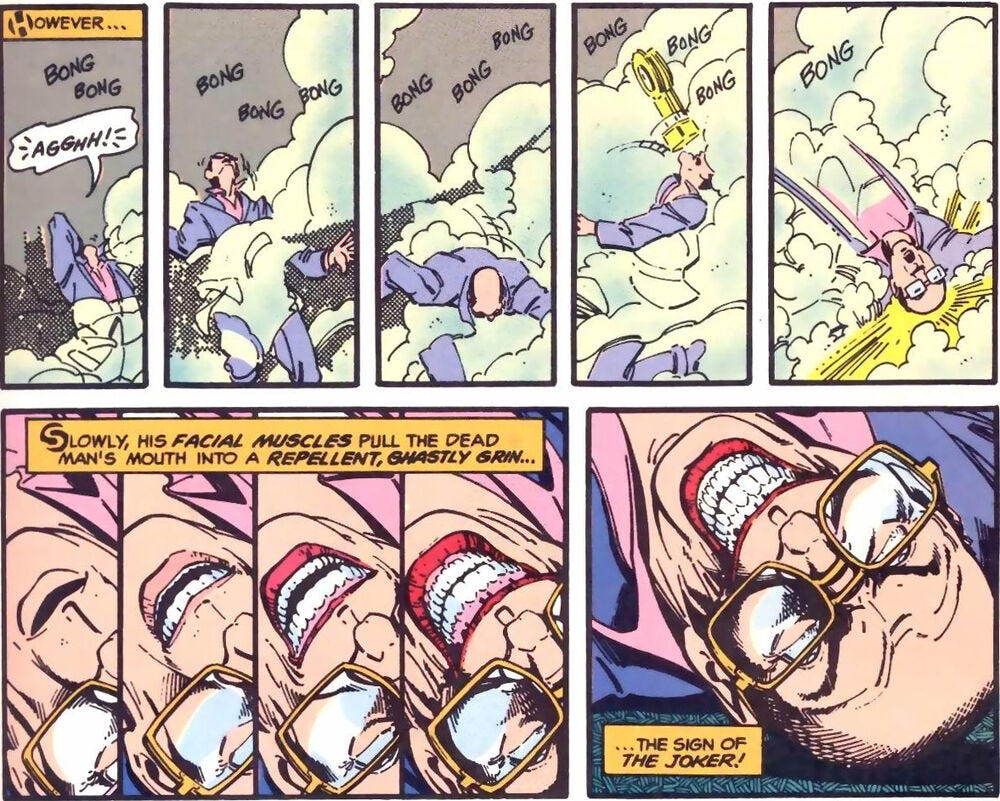Nothing Good Comes From Looking Into a Mirror
Thinking about nothing in particular re: mirrors
In the 1997 sci-fi click Contact, a young Ellie Arroway runs up a flight of stairs as her father succumbs to a heart attack. She’s desperate to reach the mirrored medicine cabinet that contains his medicine. As she draws nearer to the cabinet and her own reflection, the film speed is slowed and a nightmare-like effect is created. Time is warped beyond the point in which she reaches the cabinet by suggesting via an awesome feat of camera trickery, that the entire scene took actually took place inside of the reflection.
Early in the 2000 film American Psycho, Patrick Bateman concludes a sociopathic monologue in which he details the lengths in which he goes in order to “fit in” before looking into a mirror, peeling off his facemask as though it was a 2nd set of skin, and proclaiming there to be nothing behind his own eyes and establishing the moral and spiritual vacuum that preempts his murder spree.
Sometimes the mirror scene doesn’t require a monologue or dramatic action. In Rosemary’s Baby (1968) There is one subtle, but very intentional shot where Rosemary’s distorted reflection is cast by a modern looking chrome toaster. This shot suggests that even our modern perspectives cannot fully provide an accurate perception of the “whole” and foreshadows Rosemary’s eventual fractured perception of reality when she encounters a supernatural evil that operates beneath that veneer of modernity.
Psycho, Apocalypse Now, Taxi Driver and many many more films feature scenes involving a character’s reflection and nothing good ever comes of it. In the 2019 film “Joker” Arthur Fleck has several mirror scenes, probably because his arc is that of a downward spiral and it ultimately culminates in his assuming the mantle of super villain.
In many iterations of the character: The Joker's signature calling card—leaving his victims with a final, horrifying death grimace feels as though he is amplifying the unsettling relationship that might exist between ourselves and our reflections. He is perhaps attempting to weaponize that distorted sense of self-in-the-reflection by distilling that pain and inflicting it onto others.
In Lacanian psychoanalysis, the Mirror Stage refers to the moment an infant is able to recognize themselves in a mirror. Among other things, recognition of the self forms a self-alienating concept. Reconciliation with an ideal self can be at odds with the 3rd person perspectives gained from the mirror or other “reflections”. This creates a tension that can be very dramatic when explored filmically, but also present as neurosis in real life.
Bodybuilders, that are chiefly concerned with their appearance can never view themselves objectively, and can only see themselves through mirrors and other types of reflections. Even the negation of one’s ability to identify with ideal/elusive body compositions because of unrealistic standards presented by instagram or youtube can cause feedback loops resulting in body dysmorphia.
“…worries that one’s body is “too small” or “not muscular enough” despite having a normal build, or in many cases, an objectively extremely “buff” physique. In other words, how people with MD think about or perceive the size of their body and muscles is distorted, sometimes to the point of seeming delusional.”
Ultimately, this is another form of the tensions highlighted by Lacan’s theory of the “mirror”, but it’s principles work in the abstract as well.
In Neon Genesis: Evangelion, Shinji battles feelings of uselessness and rejection. He struggles for the love and acceptance of the other characters, including that of his cold and indifferent father. Characters reflect his concerns with affirmations and support, but he’s unable to reconcile the positivity with his lived experience and the neurotic patterns of thought he developed during a traumatic childhood.
Shinji expresses the desire for non-existence throughout the series. At the end, he is given the opportunity to merge consciousness with everyone he has ever known and loved. But to remove the painful ambiguity that comes with existing in the fragmented perspectives of others might be a form of death in and of itself. One line in NGE goes: “the fate of destruction is also the joy of rebirth”.
At the end of the series, Shinji declares “I am!”, asserting his individuality. He learns to love himself, and from there he develops the resiliency to cope with all the people in his life. A grand -uncomplicated - unity wasn’t the answer and in real life it isn’t even possible.
I guess our identities are largely these composited and multilayered matrixes of perspectives. How we respond to subvert or reinforce them is the drama of our lives signified by the mirror in media. I don’t know!







